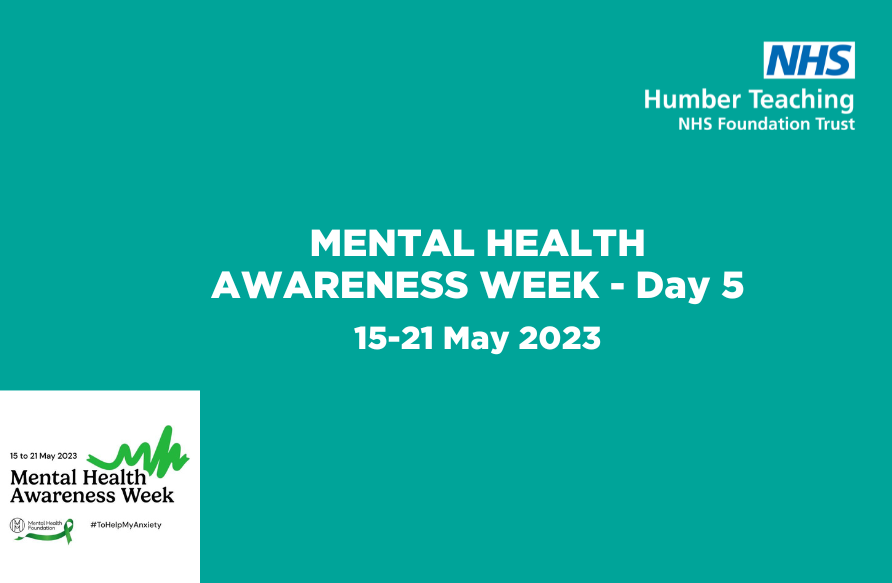Day 5 - Mental Health Awareness Week 2023 - Panic Disorder Anxiety
Published: 19 May 2023 to 31 December 2098

Panic Anxiety Disorder
For Mental Health Awareness Week this year, the focus is anxiety.
However, anxiety can come in many forms, one of which we are focusing on this week comes in the form of Panic Disorder.
So, what is Panic Disorder?
Panic disorder is where you have recurring and regular panic attacks, often for no apparent reason. Everyone experiences feelings of anxiety and panic at certain times during their life. It's a natural response to stressful or dangerous situations. However, for someone with panic disorder, feelings of anxiety, stress and panic occur regularly and at any time.
What to look out for:
Panic attacks are a regular symptom of panic disorder. So, it is important to know what to look out for as you get a rush of intense mental and physical symptoms. It can come on very quickly and for no apparent reason. A panic attack can be very frightening and distressing.
Symptoms include:
- a racing heartbeat
- feeling faint
- sweating
- nausea
- chest pain
- shortness of breath
- trembling
- hot flushes
- chills
- shaky limbs
- a choking sensation
- dizziness
- numbness or pins and needles
- dry mouth
- a need to go to the toilet
- ringing in your ears
- a feeling of dread or a fear of dying
- a churning stomach
- a tingling in your fingers
- feeling like you're not connected to your body
If someone experiences a panic attack, they typically last between 5 and 20 minutes. Some have been reported to last up to an hour. Depending on the severity of the condition, depends on how often the attacks happen. Cases can start at once or twice a month and escalate to several times a week. It’s important to remember that they are not dangerous. There is no risk of physical harm. As well as this it is worth noting that most of these symptoms can also be symptoms of other conditions or problems, so you may not always be experiencing a panic attack. For example, you may have a racing heartbeat if you have very low blood pressure.
When to seek help:
Make sure you GP if you've been experiencing symptoms of panic disorder. It is likely they will proceed to ask you to describe your symptoms, how often you get them, and how long you have had them. They may also carry out a physical examination to rule out other conditions that could be causing your symptoms.
It can sometimes be difficult to talk about your feelings, emotions, and personal life, but try not to feel anxious or embarrassed, and if you do feel like want to talk to someone. Please sure the NHS East Riding Talking Therapies. There is no need for a referral from the GP. The first step can be made by you.
Text TALK to 60163
Call: 01482 335451
Refer Online: https://iaptportal.co.uk/erew.html
Website: www.humberews.co.uk
- Summary:
Read more about Panic Disorder Anxiety on Day 5 of Mental Health Awareness Week 2023 (15-21 May)
- Category:









